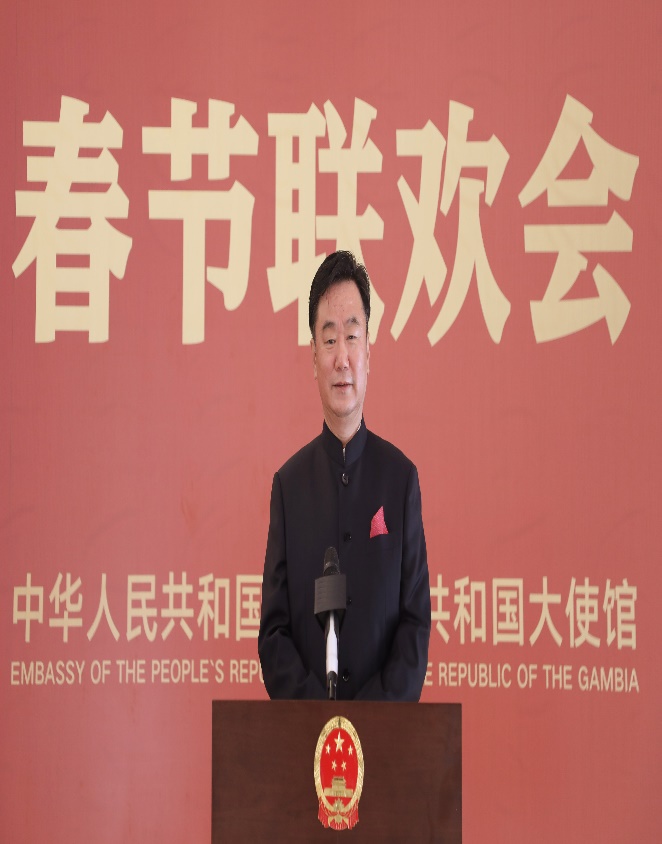GOVERNMENT CAN NO LONGER TREAT AFFLIATED SOES AS DEPARTMENTS UNDER LINE MINISTERIES.THE ESTABLISHMENT OF A DEDICATED MINISTRY RESPONSIBLE FOR SOES IS THE WAY FOROWARD.
We have recently been witnessing newly appointed cabinet ministers and presidential advisers doing familiarization tour of departments and state enterprises without members of theboard of directors of the state-owned enterprises (SOE) or those of the newly set up SOE Commission as part of the entourage. This could have consequences of undermining the established governance, management and operational procedures of the commercial enterprises. Empirical studies have shown that disjointed corporate governance is identified as one of the major factors in virtually all known instances of poor SOE performance in the Gambia.
Corporate governance of the SOEs is the responsibility of the board in which the sector ministry is usually represented bythe Permanent Secretary from the line ministry. Corporatizing the state enterprises as commercial entities give the board andmanagement the autonomy to run the SOEs akin to the efficient management and prudency in financial discipline of profit-driven private companies. Under this arrangement, administrative or institutional controls from government is minimized especially now that many SOEs have signed or are on the verge of signing a performance contract with government through the newly established SOE Commission.
The principal reasons for the establishment of the Commission are to improve the governance of SOEs and ensure public enterprises operate in a manner that is efficient, profitable, and serving the interests of the public. The Commission is also mandated to establish a profile of potential board members to be appointed with the requisite skills and knowledge to steer the affairs of the SOEs, but recently many board members are being appointed without passing through the Commission. This is a grave concern as most of these appointments are political in nature and have not been strictly based on merit.
Consequently, government must be committed to give its undiluted support to the proper functioning of the SOE Commission to achieve its mandate successfully so as to provide quality leadership especially in the SOE sector especially in the monitoring of the KPIs set out in the signed performance contracts with some of the state enterprises.
The ministry of finance which is responsible for the Commission is heavily overloaded with competing national priorities. Having eleven or twelve directorates within the ministry each with pressing national policy mandate to carry out would find it very difficult to prioritize the major issues affecting the SOEs.
Among the challenges public enterprises were facing in the past had to do with the overlapping oversight and controlsamong the various stakeholders. The previously existingtripartite oversight functions performed by the Line Ministries, the Ministry of Finance (MOFEA) and Office of the President(OP) contributed to the ominous failures to successfullyimprove the poor performances of the public enterprises as outlined below: –
– The line ministry, as the parent ministry, nominates board members for appointment by the President, it also provides guidance on sectoral policy, technical and operational matters as well as monitoring non-financial matters. Under this system, SOEs in the transport, telecommunications, media, energy & water, financial services, and agriculture sectors are expected to implement policy directives to secure achievement of overall government objectives from six different line ministries.
– MOFEA as the ministry responsible for all investments of the government, it provides guidance on budget preparation, monitoring and approval by the President. Part of its fiduciary roles also include overseeing the AMRC (before its dissolution) and SSHFC as well as reviewing in-year financial performance and the progress in the performance contracts KPIs.
– Office of the President as the apex oversight body, isresponsible for appointing Board directors and managing directors, signing of performance contracts and budgets, receiving periodic financial performance reports from MOFEA on SOE performance; and issuing directives to sector ministries and SOEs.
– Finally, there is the legislature which provides legislative oversight specifically focusing on the review of past financial and activity performances of the state enterprises on behalf of the people.
There is no doubt that these conflicting bureaucratic arrangements which existed in the past years- a total of 6 government line ministries exercising sectoral oversight over 13 SOEs – did pose serious challenges for the efficient management of the public corporations. One of the major problems of this type of oversight control relates to poor management of the interface between government and the board of SOEs. Having a separate ministry for SOEs wouldminimize the problems of mixed governance mandate and reducing the probable misuse and abuse of enterprise resources to increase efficiency and boost profits.
This proposal will not sit well with the sector ministries for obvious reasons. The government had a long history of mismanaging the state enterprises with little success registered in the many reforms executed thus far. The creation of the SOE Commission as a regulatory body to address the thorny question facing the performance of SOE continues to provide fiscal challenges to government. In the 2024 Budget, the finance minister highlighted the intention of government to free up fiscal space by addressing fiscal risks emanating from underperforming SOEs which is expected to take effect this year.
To date, significant resources have been utilized in reforming the state enterprises and the results are still not satisfactory. Some underperforming ones are now slated for privatization. A case in point is GAMCEL, 60 percent of which is to be put on sale to the private sector this year.
Conducting familiarization visits to SOEs by cabinet ministers or presidential advisers excluding the board members or even officials of the directorate responsible for SOEs at the Ministry of Finance is a serious procedural lapse with existential threat of exacerbating the challenges of role conflicts, lack of management autonomy and the multiplicity of different oversight responsibilities all contributing to the poor performance of the SOEs.
Therefore, the creation of a separate ministry responsible for SOE matters consistent with modern international bestpractices will place matters of significant importance affectingthe state enterprises prominently in the cabinet agenda with regularity.
As state enterprises continue to contribute increasingly in employment creation, generating massive revenues in taxes and making huge dividend payments to the annual budgets of the government, the public enterprises important role in the economy – contributing almost 50 percent of GDP -can no longer be ignored. Expanding the SOE reforms to include theestablishment of a separate ministry for the SOEs should be made a reality.
By: Dr. Alieu .O. Faal
Dr. Faal is currently a Subject Matter Specialist at the National Assembly. He is a former Resident Senior Adviser (SOE Matters) at the Ministry of Finance and economic Affairs. A former PFM Key Expert at WYG International, a UK Consulting firm, and has worked with many SOEs as Head of Finance and as a Private Consultant.




